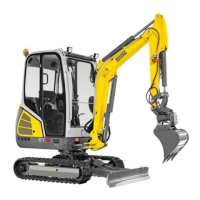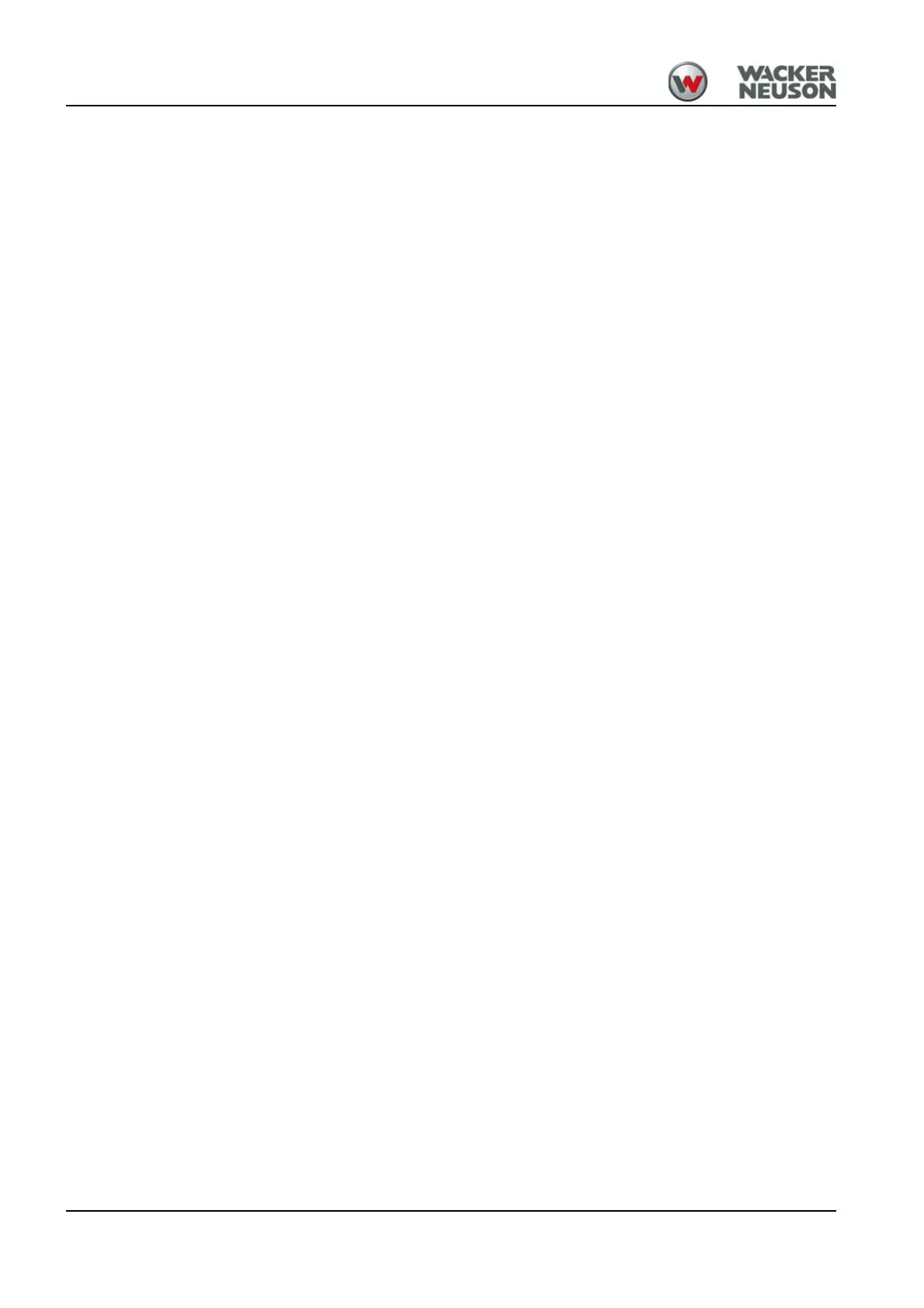2-18 BA ET18, 20, 24 en* 1.5 * Sicherheit_12072013.fm
2 Safety
Battery
• Batteries contain caustic substances (for example sulfuric acid). When
handling the battery observe the specific safety instructions and
regulations relevant to accident prevention.
• A volatile oxyhydrogen mixture forms in batteries during normal
operation and especially during charging. Always wear gloves and eye
protection when working with batteries.
• Do not perform battery maintenance near open flames.
• Perform battery maintenance only in well-ventilated areas (for example
due to vapors harmful to health, explosion hazard).
• Starting the machine with battery jumper cables is dangerous if
performed improperly. Observe the safety instructions regarding the
battery.
Safety instructions regarding internal combustion engines
• Internal combustion engines present special hazards during operation
and fueling.
• Failure to follow the warnings and safety instructions can cause
serious injury or death.
• Keep the area around the exhaust system free of flammable materials.
• Check the engine and fuel system for leaks (for example for loose fuel
lines). Do start or let the engine run in case of leaks.
• Breathing the exhaust fumes causes death very quickly.
• Engine exhaust contains gases you cannot see or smell (for example
carbon monoxide and dioxide).
- Never operate the machine in enclosed premises or areas (for
example in pits), if there is no suitable ventilation (for example
exhaust-gas filters, suction systems).
• Do not operate the machine in potentially explosive areas.
• Do not touch the engine, exhaust system and cooling system as long
as the engine is still running or has not cooled down yet.
• Do not remove the radiator cap when the engine is running or hot.
• The coolant is hot, under pressure and can cause serious burns.
Bleeding the fuel system and refueling
• Do not bleed the fuel system or refuel near open flames.
• Bleed the fuel system and refuel only in well-ventilated areas (for
example due to vapors harmful to health, explosion hazard).
• Wipe away fuel spills immediately (for example due to fire hazard,
slipping hazard).
• Firmly close the fuel tank cap, replace a malfunctioning fuel tank cap.

